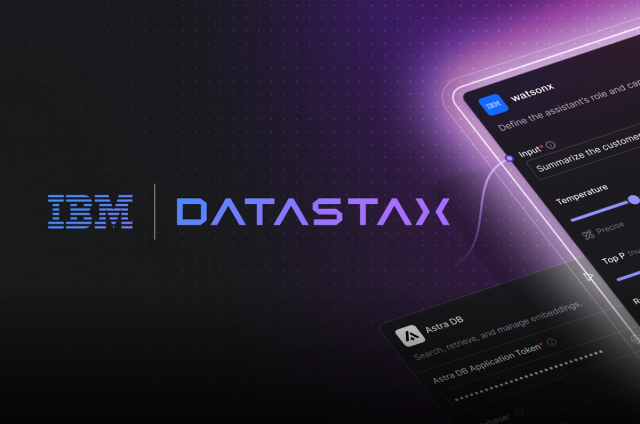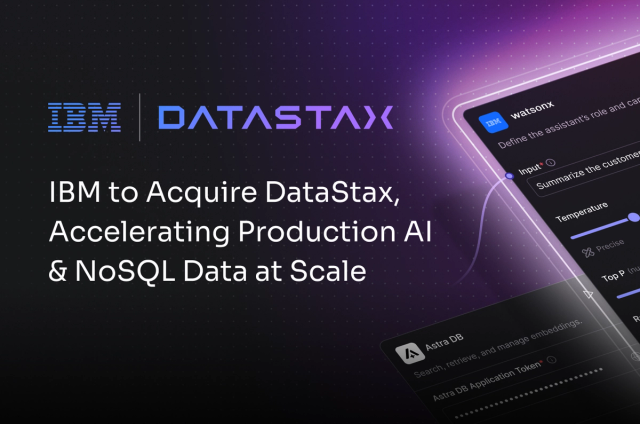By: Eric Zietlow, Cedrick Lunven, Aleks Volochnev, Jack Fryer, Patrick McFadin
This is a blog post that is geared towards those of you in developer relations who are trying to figure out how to manage through a lack of in-person events. If you are a consumer of these events, please let us know how we can do better. Coronavirus has completely changed our entire world in a short amount of time. We provide this information to anyone who can use it in the spirit of sharing and community. We believe this is a critical part of our larger developer communities and how we all move forward together. If you want to share your ideas, follow @flylessconf and join in the conversation.
The problem
Like good engineers, we want to tackle a problem methodically. The problem we are trying to solve, in this case, is a lack of in-person events. With the COVID-19 pandemic, it will be months (or longer) before we are able to meet in large groups. At DataStax, we have always had a mix of on-demand and in-person education content, letting each person decide on how they want to consume. By shifting to online-only, we miss some really important features that users seek when attending an event:
- Meeting other peers
- Individual attention when challenged by exercises
- The ability to bring specific questions about your use case
How can we recreate the experience of being together and having 1:1 instructor interaction with attendees? Traditional webinar/conferencing solutions didn’t seem to help much when trying to troubleshoot these two issues. Unconventional issues call for unconventional solutions.
The solution
Enter stage right: Discord. Discord is a VoIP app used primarily for gaming and communication in the gaming community. Recently, Discord added the ability to share screens with other people in the same chat room, and support for multiple text channels active at once with multiple voice enabled channels. This allows us to create troubleshooting breakout rooms where we can troubleshoot student issues one-on-one, with screen share going both ways. This also allows students to interact with one another in text channels without getting in the way of the instructor content.
For all that Discord delivers out of the box, there are still a few things missing. Getting students their lab instances is hard at scale since each person needs their own. Additionally. we need to set up a number of custom welcome instructions and clean out the text channels once an event is over.
Enter stage left: MEE6 Discord bot. This bot notifies us automatically when students join channels so that we can send them instance information, in addition to all the other “welcome” and “house cleaning” operations we need to handle.
Discord:


MEE6 Bot

Twitch
Twitch, the video streaming platform, is also pretty popular in the gaming world. You can find numerous streamers sharing their screen when they play video games. Bigger events and competitions are often streamed there. Our Twitch DataStaxDevs channel has existed for about 18 months now, and we have had mixed successes. We felt it was the perfect time to strengthen our game.

Twitch has numerous advantages to grow our community and share content broadly:
- Unlike Discord, there is no limit in the number of viewers for video streams.
- Once people have subscribed to the channel, they will receive notifications each time we go live. This is an interesting alternative from chasing after people across meetup.com, eventbrite.com, or email campaigns. We can also schedule the events there.
- All sessions are recorded and available for 14 days (even if the video quality is not top-notch). This is a good way to review, fix our mistakes, and keep improving. It’s also the best way to make the content available in each timezone.
- The platform is less formal than a webinar. We can still interact with viewers through chat, but the idea is more to route them to Discord and interact with us there.

Having holding multiple events now we do have multiple tips and tricks to share:
- Open Broadcaster Studio (OBS) is the tool we use to capture screens, record, and stream everything.
- If a stream is not hosted by the speaker or you have two speakers (one remote), it is not easy to stream the sound in high quality.
- To encourage people able to join us and ask questions, we put overlay on the stream video:

- We currently stream directly to Twitch. But we are looking at restream.io to stream to Twitch and YouTube simultaneously.
You now have your platform, but how are you going to reach new people
The DataStax Developer Relations team is on a mission to show every developer in the world the power of Apache Cassandra™. The biggest benefit of hosting virtual events is the volume of people you can target. Since you are no longer searching for that one room in one building in one city, the world becomes your big open room (with the exception of timezones).
We have had some great success in pulling a whole set of new audiences into our learning loop. Here are some ways we did it.
Twitter and Facebook
We all know that one of the best promotional tools available is Twitter. Engage your teams and have them share the links to their following on every social platform—not just on Twitter. For example, we had some great success with targeted ads on Facebook.

Meetup
Most Developers globally will be a part of one or multiple Meetup groups. Continue to make the connection via Meetup. You might see the same people show up to each event, but at least you are continuing their learning loop. Don’t lose contact! These people are the most important part of any community. They will become your advocates in the long run.
You can find one of our invites here: https://www.meetup.com/fr-FR/Dublin-Cassandra-Users/events/268978512/
Eventbrite
Eventbrite had previously been unchartered waters for the Dev Rel team here at DataStax. So, with the shift in event style, we thought now was the perfect opportunity to see what the platform had to offer.
Much like Meetup, many developers around the world are familiar with Eventbrite and the types of experiences it offers. Perhaps unlike Meetup, Eventbrite has many hidden features you should be taking advantage of.
Let Eventbrite do the leg work. Meetup is great for letting your current members know of a new event. One thing we often see when updating our Meetup pages is that you can expect to attract a very small handful of new audiences with a new event. In our experience however, Meetup’s event promotion sticks to what it knows. Of course, your group members will be notified. But the extent to which it pushes this event out to brand-new audiences is limited.
Eventbrite is much more effective at helping us reach new audiences, showing even more developers the power of Apache Cassandra. To give you an idea, 75% of registrations for our new virtual workshops were pulled in from Eventbrite channels, which are Eventbrite’s magical cogs that work in the background to push your page out to as many users as possible.
Here is our top tip for using Eventbrite: Tag your event! When setting up your page, Eventbrite will ask you to tag relevant topics. You get 10 tags, so make sure you exploit these as best you can. Pick tags which not only reflect your topic but are also topics your target audience is interested in.
Lessons Learned
After doing a few events, we have learned a few things and have put together a quick list of important things worth sharing. Some may be obvious to you, but we wanted to be thorough:
- People don’t like to read everything
- People do not cancel events
- Not everyone will be on time; latecomers will play catch up
- People are busy and will be no-shows; get as many registrations as you can
- 3 hours is too long; less is more
- Create a process to capture attendees and continue the loop (not a sales loop, a learning loop)
What’s Next
We are doing sessions every week and learning more each time. Our current plan calls for more diversity in the type of content and keeping everything short and manageable. Being there for users when they want to learn a little something is a key fact we want to keep iterating upon. How can we get better and be more useful to those who attend our virtual events? Once we have more to share, we will come back with another blog post with some updates. Until then, we would love to hear from you about what you’re doing to engage your communities during the coronavirus era.










